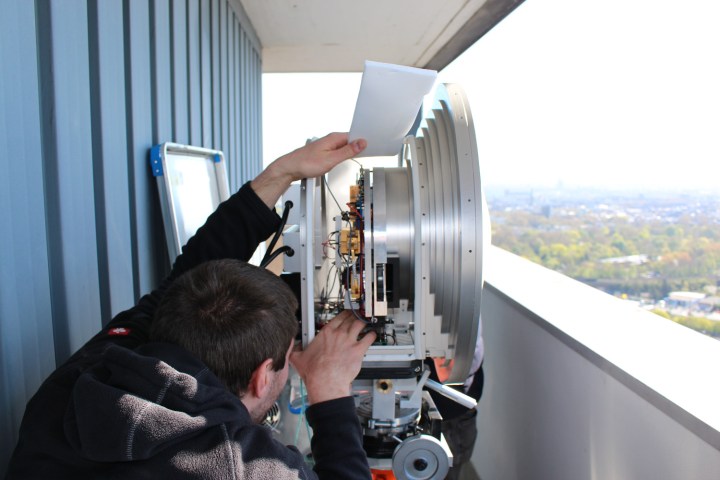
This accomplishment was the product of a research project known as ACCESS, which stands for Advanced E Band Satellite Link Studies. The group was comprised of researchers from the University of Stuttgart and the Fraunhofer Institute for Applied Solid State Physics, and led by Professor Ingmar Kallfass.
The world record was broken as the group transmitted data from the 45-storey Uni-Center in Cologne to the nearby town of Wachtberg.
These incredibly high speeds were accomplished through the use of the E band of radio frequencies, which is regulated for terrestrial and satellite broadcasting. This is the only frequency range that offers up bandwidths capable of reaching such a transmission rate, according to documentation released in support of the findings.
Between attaining such high speeds and reaching across a sizeable distance, there were plenty of obstacles for the team to overcome. Using transistor technologies supplied by Fraunhofer, the research team was able to achieve transmission power up to 1 W while maintaining a high level of amplifier efficiency.
While the technology behind the test might be tough to grasp, its potential applications are much easier to digest. It’s thought that we could use this kind of E band transmission as a cost-effective means of delivering high quality internet to remote and rural areas. Current internet technologies available to such locations require a heavy infrastructure investment, or rely on ground-to-satellite transmission, which tend to suffer limit bandwidth and high latency due to the extreme distances a transmission must cover.
The ACCESS project is being succeeded by ELIPSE, which stands for E Band Link Platform and Test for Satellite Communication. The follow-up is intended to look at next-generation communication systems in order to find a way of maintaining fast satellite connections.


